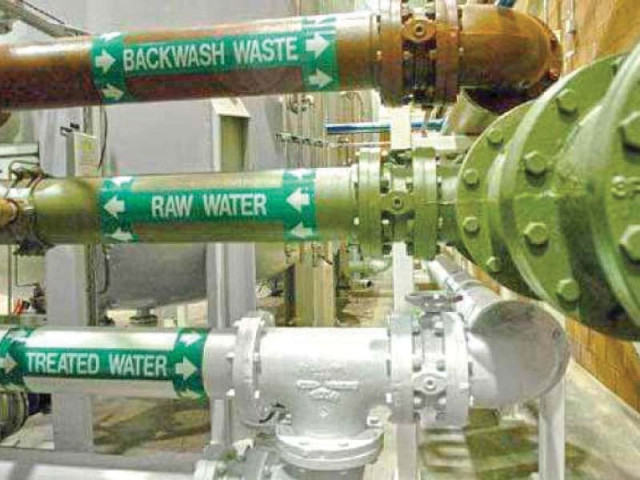Muzaffargarh village water unfit for human consumption
Doctor working in DHQ hospital says thousands of patients suffering from waterborne diseases were treated

PHOTO: FILE
This village is part of a large segment of Pakistan’s population that lacks access to safe and clean water. Although the federal government has provided the much-needed impetus to its efforts to ensure the provision of clean water, much more work needs to be done.
Ameer Dasti, a resident of Dastiwala, told The Express Tribune that he has, for the first time, been able to drink clean water from a recently installed filtration plant in Government Elementary School for Boys, Dastiwala village, under the Punjab Youth Workforce Development (PYWD) project.
According to a recently published World Bank report, access to safe and clean water for 64% of Pakistan’s population is still an elusive dream. This drastic depravity of drinkable water has played havoc with the health of millions of people across the country. Southern Punjab is not an exception.
“The plant was operational this week. I fetch 20 litres of water every morning and that is enough for my family consumption,” Ameer said.
Earlier, the local residents relied on bottled water being sold at hefty rates. Others would rely on boiled water.
Mussels, 'super-filters' that can help beat water pollution
With a total population of four million, the district has 22 textile mills, 80 cotton factories, four sugar mills and three power plants as well as vital installations of PARCO and PSO departments. The district, however, has many other facilities that are missing. A doctor working in DHQ hospital said that the hospital treated thousands of patients suffering from waterborne diseases.
In Muzaffargarh, there has been no water filtration plant for decades. The Dastiwala filter plant is, however, owned and protected by the community.
“This is our own property and we will take care of the plant,” said Jindan Mai, a resident of Dastiwala who fetches water from the plant every evening. She added that her father died of hepatitis, which he had contracted because of consuming contaminated water. “We are so happy, as if we have been blessed with a new life.”
PYWD officials said that the water test report depicted a high arsenic level and Total Dissolve Solids (TDS) which was three times higher than the World Health Organisation standards.
Therefore, realising the genuine need of the community, the PYWD project installed a grid-free water filtration plant by using renewable energy solutions. This water filtration plant has a processing capacity of 500 litres per hour and it is primarily powered by a 5KW solar system. This plant also removes bacterial, microbial organism and viral contamination from drinking water, making it suitable and healthy for drinking purposes.
Member of Provincial Assembly Abdul Haye Dasti was also upbeat about the sustainability of the project. "Potable water is a much-needed facility for my constituency; it's good we have the water plant and it's up to the people of the area now to own and run it," he said.
To ensure running of this filtration plant, the management engaged with officials of the Muzaffargarh district government to seek ownership of the project. The project team also delivered awareness sessions to the community and formed a committee to ensure efficient management, proper maintenance and security of this plant which will yield benefit to around 6-7,000 community members of Dastiwala.
PYWD Party Chief Qaiser Nadeem said that this water filtration plant is among 22 others, installed in Muzaffargarh, Multan, Bahawalpur and Lodhran. “The project has set the benchmark and its efforts can be synergised by the district government.”
He added that public and private sector organisations can also help achieve the common objective of providing potable water to the community, ensure health and hygiene, improved livelihoods, and thereby sustainable community development.
Published in The Express Tribune, August 20th, 2019.



















COMMENTS
Comments are moderated and generally will be posted if they are on-topic and not abusive.
For more information, please see our Comments FAQ